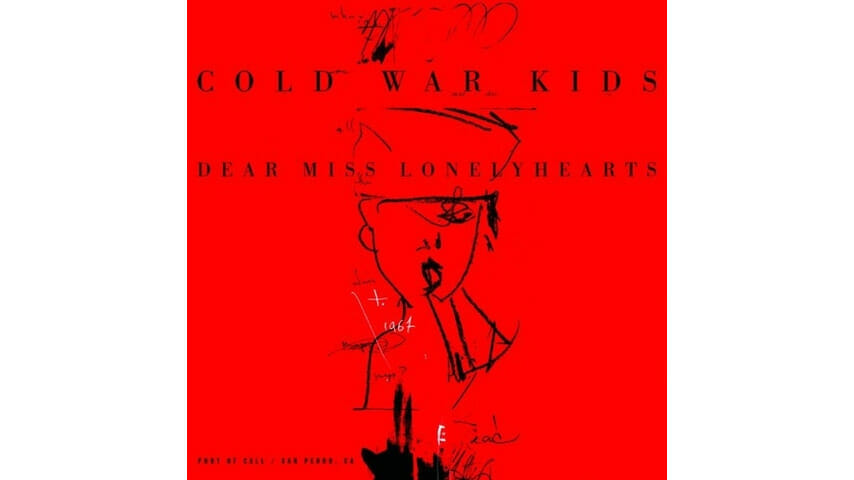Cold War Kids: Dear Miss Lonelyhearts

“Honestly, this is the first album where I do have expectations and I would be surprised and disappointed if the record didn’t do well and open doors for us. Being able to tour in Asia, play bigger venues, or record a song with someone like Elvis Costello, is the sort of thing I expect with this album.”
Yes, that is Nathan Willett, frontman of Long Beach-based “soul-punk” outfit Cold War Kids, but not recently. That quote from Clash Magazine refers to their previous release, 2011’s Mine Is Yours, and by as far as hasty internet research reveals, Cold War Kids did not make it to Asia, and only covered Costello, though the hope of playing bigger venues had to be reached in some festival settings. The sense is that Cold War Kids are maintaining a status (high-end second tier?) without really losing nor gaining much in terms of audience. For the band, the question becomes do you bemoan what you have not achieved or be grateful for what you have—even though that gratitude risks complacency?
-

-

-

-

-

-

-

-

-

-

-

-

-

-

-

-

-

-

-

-

-

-

-

-

-

-

-

-

-

-

-

-

-

-

-

-

-

-

-

-








































